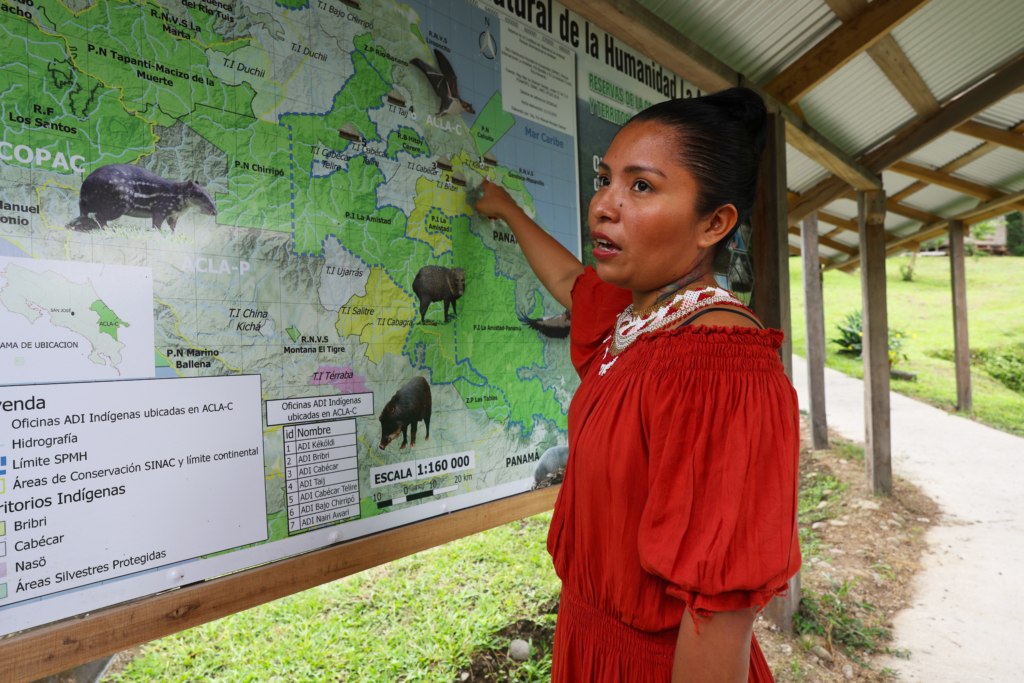There are heightened calls for more companies around the world to invest heavily in the carbon market for forests restoration.
The Environmental Defense Fund, international companies and other countries including Ghana and Costa Rica are requesting more corporate institutions that emit more greenhouse gases to purchase carbon credits despite the minute hitches in the sector.
Incentivizing the carbon market has been identified as one of the constant challenges affecting the voluntary carbon market globally.
The global predicament is stemming from disinterest by companies and lack of effective communication between countries putting out their carbon sinks for purchases and the corporate sector.

Managing Director, Corporate Partnerships at Environmental Defense Fund, Elizabeth Sturcken, believes more contributions from the companies could shore up finances in the market.
She indicated that the corporate sector must contribute actively to the market to shape it for a more high-integrity carbon credits.
“Corporate should not sit aloof and be passive observers to the voluntary market. They should step up and play an active role in shaping the markets and moving them to high-integrity solution, deploying more investment where they matter most. We have answers, we have to act on them,” she said.
She spoke at a virtual meeting on the theme: “Financing Forest Protection” organized by Greenhouse Communications - an international green communications organization.
At COP28, the governments of Costa Rica and Ghana signed emission reduction purchase agreements (ERPAs) with Emergent to supply high-integrity JREDD+ credits to buyers of the LEAF Coalition.
The coalition is a partnership of the private sector and donor governments aiming to halt deforestation by 2030 through financing large-scale tropical forest protection.
The carbon market is characterized by the supply and demand sides impacting the market eco-system at all times.
While the supply side of the carbon market is readily available, demand for the carbon credits is on the low.
With the little demand for high-integrity carbon credits, Director of Climate Change at Ghana’s Forestry Commission, Roselyn Fosuah Adjei, emphasized on the Integrity Council for Voluntary Carbon Markets staying abreast of happenings in the supply side of the market.
She believes it would help the council appreciate the integrity of the carbon economy.
“You can’t come up with core carbon principles when you’re not actually in touch with the ground to understand what it takes to be able to generate a tonne of carbon. The ICVCM should be able to capture nuances on the ground from the supply side. Being able to do that will be very useful in determining the integrity of these carbon principles,” she said.
She continued: “If the supply side doesn’t create an enabling environment to open up for some of these exchanges, there will be no improvements. We should be able to create space to elevate our ambitions. High integrity is more important to the supply side than the demand side. We’re mostly affected by the climate change”.

But some corporate institutions believe a more structured exchange between the demand and supply sides would enhance operations in the market.
Sustainability Partnerships and Strategy Director of GSK, a UK-based biopharma, Adele Cheli stressed on the essence of standardizing transaction to boost investor confidence.
“Effort to either standardize or facilitate the complex process that is to transact in the market for a corporate is absolutely welcome and would increase confidence. Efforts like LEAF alongside standardizing the quality side (ICVCM) can really make companies act more quickly,” she said.
She added that: “Without nature protection and restoration there’s no chance to stay below the 1.5 degree Celsius. We must protect our existing carbon sinks or invest in nature restoration”.
Recognizing the need to address challenges confronting the market, the Integrity Council for Voluntary Carbon Markets (ICVCM) has emerged as a significant player in the landscape of carbon markets.
Managing Director of Corporate Partnerships at Environmental Defense Fund, Elizabeth Sturcken, assures that the ICVCM is working to provide a global standard for the high-quality carbons.
“ICVCM will set up a global threshold standard for high-quality carbon credits that will reduce confusion on the supply side.
"When it comes to demand, ICVCM will update claims of code of practice that will provide a roadmap for companies to make responsible claims for carbon credits,” she said.
Latest Stories
-
A new dawn in Ghana’s economy – Kudos to the men steering the ship
23 minutes -
“Swearing-in fiasco broke me” – Naa Momo Lartey
52 minutes -
Ghana’s roadmap to a safer future through Tobacco Harm Reduction: Reflections on the Lives Saved Report
55 minutes -
KIA dispels “false” safety breach reports
1 hour -
External sector outlook favourable; Gross reserves amounted to $10.7bn in April 2025 – BoG
1 hour -
Consumer, business confidence shows significant improvement, highest in 7 years – BoG
1 hour -
What SML’s critics want is a return to manual accounting so they can exploit loopholes – Yaa Sarpong fires back
2 hours -
Video: Adenta Kumi jubilates with NPP party officials after release from NIB custody
2 hours -
A legacy of excellence: The transformational journey of Kwaku Yeboah-Asuamah at miLife Insurance Ltd (2016–2025)
2 hours -
I wish I answered some questions differently in my early days interviews – Gyakie
2 hours -
Gender Minister shares her journey of unexpected calling into politics
3 hours -
Amelley Djosu: GTA represents all Ghanaians, not just NDC
3 hours -
Saboteurs see SML as a threat – Yaa Serwaa Sarpong
3 hours -
Bank of Ghana has no target rate for cedi appreciation – Governor Asiama
3 hours -
Mystery Baby Saga: Virgin Birth Theory suffers setback as DNA clears first suspect
4 hours

